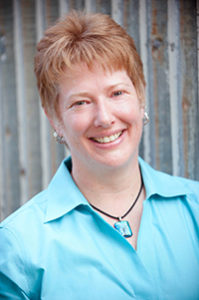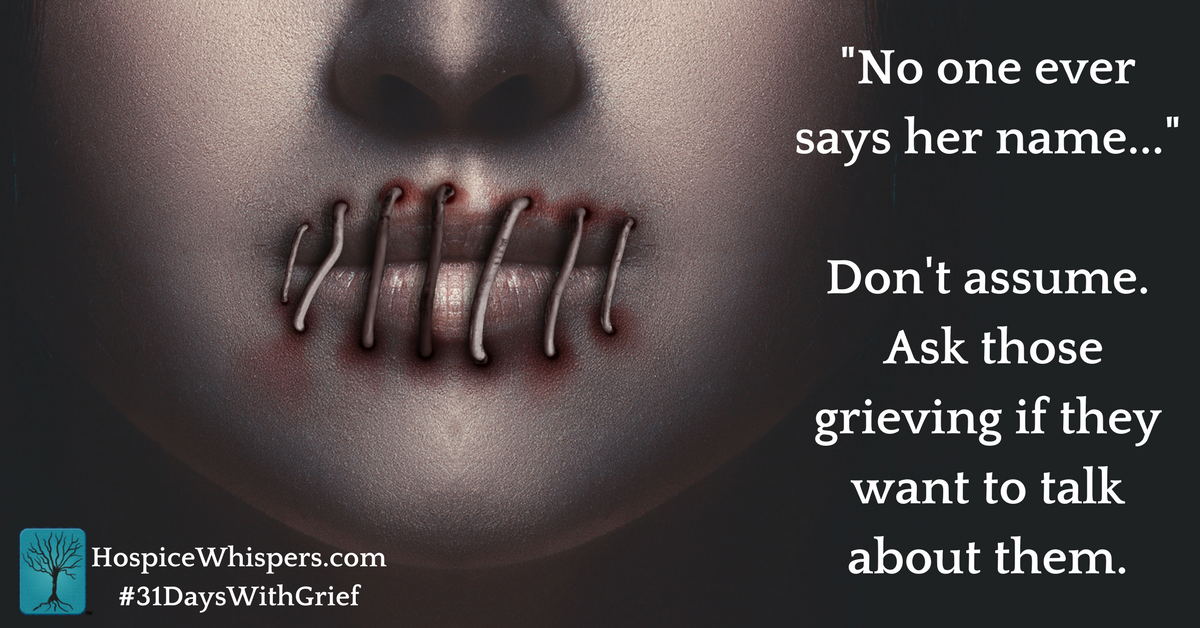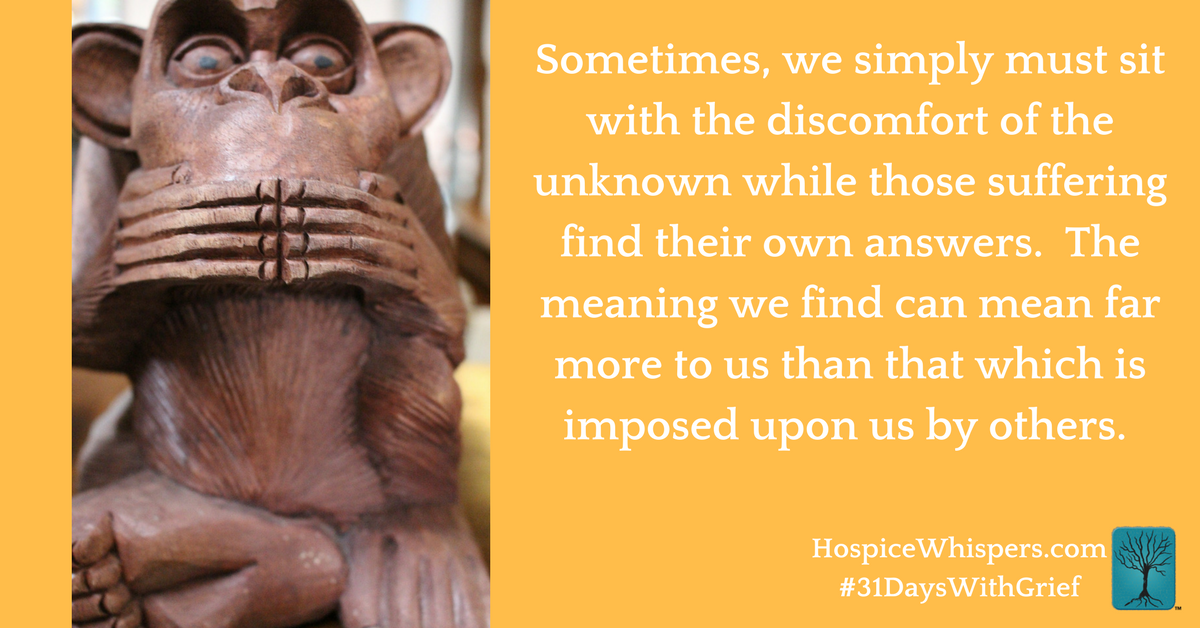31 Days of Walking with Grief: Others’ and Our Own
Day 14—”No One Ever Says Her Name…”
This is a month-long series to support persons grieving and those who love them. It includes content from “Sharing Our Stories: A Hospice Whispers Grief Support Workbook” available through Amazon and wherever books are sold.
Once while speaking at a conference in California, I met a woman named Dev from an advocacy organization that promotes healthy conversations around end of life care. We spoke about a variety of topics and swapped stories related to the industry and work we both love.
Our talk turned to the ways persons are often left isolated in their grief after the death of a loved one, and the things we encourage others to do, and try to do ourselves, to show up well for them.
I shared about the importance of always asking the name of the deceased by asking, “What IS their name?”.
The temptation is to ask, “What WAS their name?”, but just because the person has died does not mean they’ve lost their name or the essence of who they are to those who love them. They are still very much present in the hearts and minds of those who miss them, so there’s nothing wrong with speaking of them in the present tense.
When I do this, they tear up sweetly and thank me for asking. They smile through the tears as they speak the name of the person who still means so much to them.
My new friend nodded in agreement then told me the story of a woman she heard speak at a conference about the death of her daughter, Katrina. The mom said that as heartbreaking as the tragedy of Hurricane Katrina in 2005 was, part of her was also thrilled to suddenly be hearing her daughter’s name everywhere she turned.
On every television station, in every newspaper, and in every casual conversation, her daughter’s name once again filled her world. “No one ever says her name…”, Dev quoted the mom’s speech.
We stood there quietly as those words sunk in for us both. We’ve heard countless parents and other loved ones say this, but something about the Katrina story helped it resonate on a deeper level.
Dev spoke of the hundreds of times a day she heard her own daughter’s name, “Is Mackenzie awake?” “Kenzie, don’t forget your backpack.” “Kenzie, I’ll pick you up from cheerleading practice at 5.” She spoke of how impossible it would be to get used to her name disappearing from her ears if suddenly it was gone.
Persons fear bringing up painful memories by mentioning someone who has died, though most often the bereaved say NOT hearing about their loved one feels far worse. So, we teach persons to ask, “What is his name?” and, “Would you like to tell me about her?”
Even if they aren’t up for talking about them and say, “No”, the simple gesture of being asked is often touching and healing enough as it openly acknowledges their pain and allows another to share it, if even just for a moment.
I encourage this as practice with those around you: ask their name; ask if they want to tell you about them, what they were like, what they miss most about them. If they aren’t up for it, they’ll tell you, but by simply asking, you may offer a far greater gift than you could ever understand.
If you’re the one grieving, find a way to ask for what you need from persons who’ve earned the right to your precious trust. Say their name, yourself, to model for others that it’s okay to talk about them. Ask questions of others about them.
They may feel a little uncomfortable, at first, but it can quickly become a new normal as you overcome the taboo of speaking of the dead. Allow them to live from your mouth and not just hidden away quietly in your heart. There’s nothing morbid about it, so long as it feels helpful, and not harmful, to you.
Peace to us all as we remember those we love, and share them with others.
Carla
 Rev. Carla Cheatham, MA, MDiv, PhD, TRT has served hospices as a chaplain and bereavement coordinator. She’s the Section Leader for the Spiritual Caregivers Section of the National Hospice and Palliative Care Organization and an adjunct professor at the Seminary of the Southwest. Through her Carla Cheatham Consulting Group, Carla provides training and consulting for professional caregivers nationwide. She is the author of Hospice Whispers: Stories of Life and its companion volume, Sharing Our Stories: A Hospice Whispers Grief Support Workbook. Her next book, On Showing Up with Suffering: Others’ and Our Own, is set to publish in 2017.
Rev. Carla Cheatham, MA, MDiv, PhD, TRT has served hospices as a chaplain and bereavement coordinator. She’s the Section Leader for the Spiritual Caregivers Section of the National Hospice and Palliative Care Organization and an adjunct professor at the Seminary of the Southwest. Through her Carla Cheatham Consulting Group, Carla provides training and consulting for professional caregivers nationwide. She is the author of Hospice Whispers: Stories of Life and its companion volume, Sharing Our Stories: A Hospice Whispers Grief Support Workbook. Her next book, On Showing Up with Suffering: Others’ and Our Own, is set to publish in 2017.



